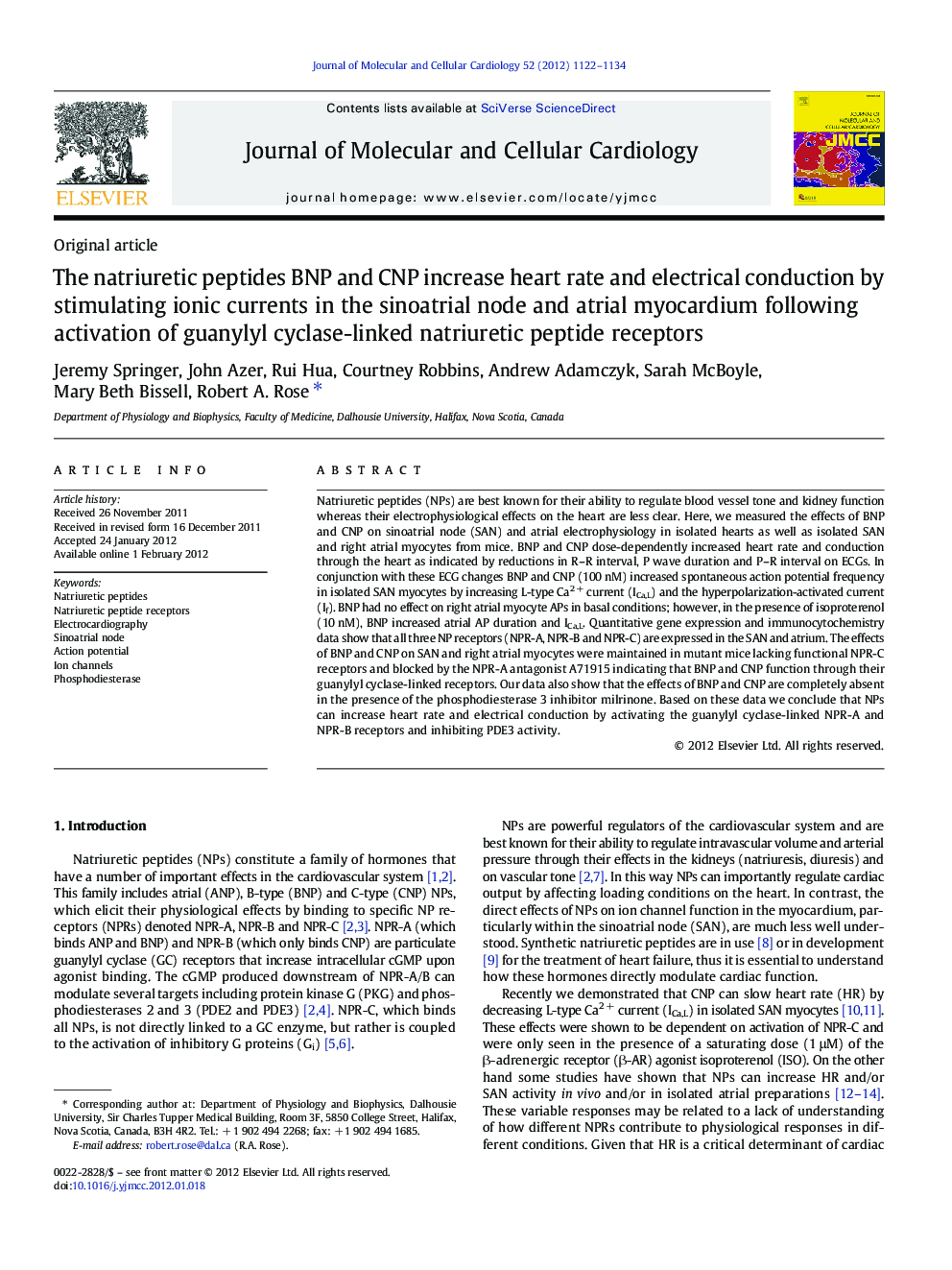| Article ID | Journal | Published Year | Pages | File Type |
|---|---|---|---|---|
| 2190696 | Journal of Molecular and Cellular Cardiology | 2012 | 13 Pages |
Natriuretic peptides (NPs) are best known for their ability to regulate blood vessel tone and kidney function whereas their electrophysiological effects on the heart are less clear. Here, we measured the effects of BNP and CNP on sinoatrial node (SAN) and atrial electrophysiology in isolated hearts as well as isolated SAN and right atrial myocytes from mice. BNP and CNP dose-dependently increased heart rate and conduction through the heart as indicated by reductions in R–R interval, P wave duration and P–R interval on ECGs. In conjunction with these ECG changes BNP and CNP (100 nM) increased spontaneous action potential frequency in isolated SAN myocytes by increasing L-type Ca2 + current (ICa,L) and the hyperpolarization-activated current (If). BNP had no effect on right atrial myocyte APs in basal conditions; however, in the presence of isoproterenol (10 nM), BNP increased atrial AP duration and ICa,L. Quantitative gene expression and immunocytochemistry data show that all three NP receptors (NPR-A, NPR-B and NPR-C) are expressed in the SAN and atrium. The effects of BNP and CNP on SAN and right atrial myocytes were maintained in mutant mice lacking functional NPR-C receptors and blocked by the NPR-A antagonist A71915 indicating that BNP and CNP function through their guanylyl cyclase-linked receptors. Our data also show that the effects of BNP and CNP are completely absent in the presence of the phosphodiesterase 3 inhibitor milrinone. Based on these data we conclude that NPs can increase heart rate and electrical conduction by activating the guanylyl cyclase-linked NPR-A and NPR-B receptors and inhibiting PDE3 activity.
► BNP and CNP increase heart rate and speed conduction across the atrial myocardium. ► BNP and CNP increase spontaneous AP frequency, If and ICa,L in sinoatrial node cells. ► BNP also increases AP duration and ICa,L in atrial myocytes in the presence of ISO. ► The BNP effects are maintained in NPR-C–/– mice and blocked by an NPR-A antagonist. ► The effects of BNP are lost following phosphodiesterase 3 inhibition.
